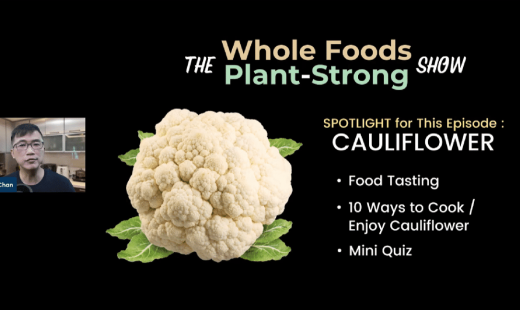While evidence is conflicting about some of the long-term effects of pesticides on children, there’s enough evidence to warrant further research into the use of pesticides. In the meantime, [we can] limit the exposure of children to such chemicals,” said Dr. Amanda Fifi, a pediatric gastroenterologist and nutrition specialist at the University of Miami Miller School of Medicine.
The health effects of pesticides depend on the chemical, how much you’re exposed to, and for how long. Potential risks include cancer and problems with the nervous system or hormones.
Fifi said children are more at risk than adults “because their growing bodies are more susceptible to the effects of toxins.”
Kids also eat more food per pound of body weight than adults, so they get a bigger “dose” of pesticides in food
And they’re more likely to pick up pesticides from contaminated floors, carpets, or lawns where they crawl or play, or from toys or other objects that they put in their mouth.
With a few simple steps, you can limit your and your family’s exposure to potentially harmful pesticides.
Both synthetic and organic biopesticides have harmful health effects at doses higher than those typically found in fruits and vegetables.
In children, accidental exposures to high levels of pesticides are associated with childhood cancers, attention deficit hyperactivity disorder (ADHD) and autism (9, 10Trusted Source).
One study of 1,139 children found a 50–90% increased risk of ADHD in children with the highest urine levels of pesticides, compared to those with the lowest urine levels (11Trusted Source, 12Trusted Source).
In this study, it was unclear whether the pesticides detected in urine were from produce or other environmental exposures, such as living near a farm.
Another study showed no adverse health effects in 350 infants born to women with higher urine pesticide levels during pregnancy, compared to mothers with lower pesticide levels (13Trusted Source).
A study of organic pesticides used in gardening found that the use of rotenone was associated with Parkinson’s disease later in life (14).
Both synthetic and organic biopesticides have been associated with increased cancer rates at higher levels in lab animals (15).
However, no increased cancer risk has been linked to the small amounts of pesticides in produce.
One review of many studies concluded that the odds of developing cancer from the amount of pesticides eaten in an average lifetime are less than one in a million (16Trusted Source).
SUMMARY:
Higher accidental or occupational pesticide exposure is associated with some cancers and neurodevelopmental diseases. However, the low levels of pesticides found in foods are unlikely to cause harm.
How much Pesticide is on food?
A comprehensive review of pesticides in food is available from the World Health Organization (17).
One study showed 3% of Polish apples contained pesticide levels above the legal safety limit for pesticides on food
(18Trusted Source).
However, the levels were not high enough to cause harm, even in children.
The levels of pesticides on produce can be reduced by washing, cooking and food processing (19Trusted Source).
One review study found that pesticide levels were reduced by 10–80% by a variety of cooking and food processing methods (20Trusted Source).
In particular, washing with tap water (even without special soaps or detergents) reduces pesticide levels by 60–70% (21Trusted Source).
SUMMARY:
Pesticide levels in conventional produce are almost always below their safety limits. They can be reduced further by rinsing and cooking food.
Are there fewer Pesticides in Organic Foods?
Not surprisingly, organic produce has lower levels of synthetic pesticides. This translates into lower synthetic pesticide levels in the body (22).
One study in over 4,400 adults showed those reporting at least moderate use of organic produce had lower synthetic pesticide levels in their urine (23Trusted Source).
However, organic produce contains higher levels of biopesticides.
One study of olives and olive oils using organic pesticides found increased levels of the biopesticides rotenone, azadirachtin, pyrethrin and copper fungicides (24).
These organic pesticides also have negative environmental effects, which, in some cases, are worse than synthetic alternatives (25Trusted Source).
Some people argue that synthetic pesticides may be more harmful over time because they are designed to have a greater shelf life and may last longer in the body and environment.
This is sometimes true. Nevertheless, there are multiple examples of organic pesticides that persist as long or longer than the average synthetic pesticide (26).
An opposing viewpoint is that organic biopesticides are usually less effective than synthetic pesticides, causing farmers to use them more often and at higher doses.
In fact, in one study, while synthetic pesticides exceeded safety thresholds in 4% or less of produce, rotenone and copper levels were consistently above their safety limits (6, 24).
Overall, the potential harm from synthetic and organic biopesticides depends on the specific pesticide and the dose. However, both types of pesticides are unlikely to cause health problems at the low levels found on produce.
SUMMARY:
Organic produce contains fewer synthetic pesticides, but more organic biopesticides. Biopesticides are not necessarily safer, but both types of pesticides are safe at the low levels found in produce.
Are There Fewer Pesticides in Genetically Modified Organisms (GMOs)?
GMOs are crops that have had genes added to them to enhance their growth, versatility or natural pest resistance
(27).
Historically, wild plants were bred to have better characteristics for farming by selectively planting only the most ideal plants available.
This form of genetic selection has been used in every plant and animal in our world’s food supply.
With breeding, changes are made gradually over many generations, and exactly why a plant becomes more resilient is a mystery. While a plant is selected for a certain trait, the genetic change that caused this trait is not visible to the breeders.
GMOs accelerate this process by using scientific techniques to give the target plant a specific genetic trait. The expected result is known in advance, as in the modification of corn to produce the insecticide Bt toxin (28Trusted Source).
Because GMO crops naturally have increased resistance, they require fewer pesticides for successful farming (29Trusted Source).
This probably doesn’t benefit people eating produce, since the risk of pesticides on food is already extremely low. Yet, GMOs may reduce the harmful environmental and occupational health effects of both synthetic and organic biopesticides.
Multiple comprehensive reviews of both human and animal studies conclude there is no evidence that GMOs are harmful to health (29Trusted Source, 30, 31, 32).
Some concern has been raised that GMOs that are resistant to glyphosate (Roundup) encourage the use of this herbicide in higher levels.
While one study suggested that high levels of glyphosate can promote cancer in lab animals, these levels were far higher than those consumed in GMO produce and even those of occupational or environmental exposures (33Trusted Source).
A review of multiple studies concluded realistic doses of glyphosate are safe (33Trusted Source).
SUMMARY:
GMOs require fewer pesticides. This reduces the risk of pesticide damage to farmers, harvesters and people living near farms. A large number of studies consistently demonstrate that GMOs are safe.
Should You Avoid Foods Using Pesticides?
There is overwhelming scientific evidence that eating lots of fruits and vegetables has many, many health benefits (34).
This is true regardless of whether the produce is organic or conventionally grown and whether it’s genetically modified or not (35Trusted Source, 36Trusted Source).
Some people may choose to avoid pesticides due to environmental or occupational health concerns. But keep in mind that organic does not mean pesticide-free.
Eating locally grown foods might have benefits for the environment, but it depends on the practices of the individual farm. If you shop at local farms, consider asking them about their pest control methods (26).
SUMMARY:
The low levels of pesticides found in produce are safe. Buying local produce may or may not reduce these risks, depending on individual farming practices.
The Bottom Line
Pesticides are used in almost all modern food production to improve crop yields by controlling weeds, insects and other threats to produce.
Both synthetic and organic biopesticides have potential health effects.
In general, synthetic pesticides are more strictly regulated and measured. Organic foods are lower in synthetic pesticides, but they’re higher in organic biopesticides.
However, the levels of both synthetic pesticides and organic biopesticides in produce are many times below the lowest levels known to cause harm to animals or humans.
What’s more, the many health benefits of eating more fruits and vegetables are very clear and consistent across
hundreds of studies.
Use common sense habits, such as rinsing produce before use, but don’t worry about pesticides in food.
FEEDBACK:
Contribution by Matthew Thorpe, MD, PhD on May 3, 2017





